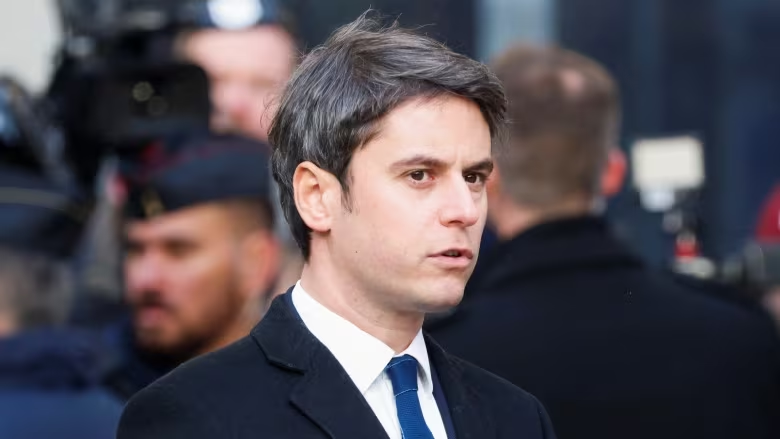
Gabriel Attal, the newly appointed Prime Minister of France, is observed during a handover ceremony in Paris on Tuesday. (Photo: Ludovic Marin/Reuters)
In a strategic move to rejuvenate his second term and address the mounting challenges faced by the middle class amid escalating living costs, President Emmanuel Macron has appointed Gabriel Attal as France's youngest-ever prime minister. At 34, Attal, a charismatic and media-savvy rising star in French politics, signifies Macron's shift towards a more unifying approach, steering away from contentious reforms and aiming to bolster his centrist party's prospects in the upcoming European Parliament elections in June.
Expressing confidence in Attal's capabilities, Macron, in a social media post, acknowledged his energy and commitment to the revitalization and regeneration project outlined by the president. Attal, a former minister and government spokesperson, acknowledged the prevailing public discontent fueled by surging living costs and the contentious pension reform from the previous year, which have adversely affected Macron's popularity ratings.
Attal, cognizant of the challenges, emphasized his understanding of the context in which he assumes the role. Pledging to address the concerns of the middle class struggling to make ends meet, he articulated a commitment to "control our destiny and free up France's potential."
Macron, facing challenges in parliament due to a diminished majority, is expected to shift his focus towards more consensual objectives, including the pursuit of full employment. Attal, who gained popularity during the COVID-19 pandemic as the government spokesman, is positioned as one of France's most favored politicians.
The appointment of Attal, who is openly gay, marks a symbolic milestone in French political history. He replaces Elisabeth Borne, the second woman to hold the prime minister role, who faced challenges during her tenure, including protests over pension reforms and public unrest following a police shooting.
As Macron and Attal deliberate on forming a new government, speculation arises about the potential impact of this reshuffle on the political landscape. While some view it as a positive shift towards a more dynamic leadership, others express skepticism, questioning the tangible changes it may bring. Marine Le Pen, Macron's far-right rival, remains critical, asserting that little can be expected from the fourth prime minister in seven years.
The reshuffle introduces an additional layer of complexity to the race within Macron's camp to succeed him in the 2027 presidential election. Noteworthy figures like Edouard Philippe, Gerard Darmanin, Bruno Le Maire, and Attal himself emerge as potential contenders in the evolving political landscape.















